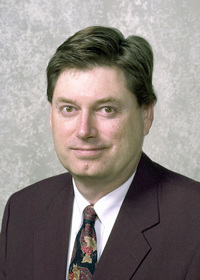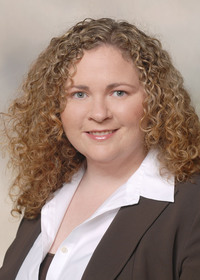Information Possibly Outdated
The information presented on this page was originally released on November 4, 2010. It may not be outdated, but please search our site for more current information. If you plan to quote or reference this information in a publication, please check with the Extension specialist or author before proceeding.
Extension trains to 'listen'
By Cheree Franco
MSU Ag Communications
MISSISSIPPI STATE -- Last spring Mississippi suffered two catastrophes. On April 20, the Deepwater Horizon oil rig exploded, killing four Mississippians and causing immeasurable damage to the Gulf Coast ecosystem and economy. A few days later, a massive tornado ripped roofs from homes and businesses in Yazoo and Choctaw counties, leaving a death toll of 10. Paula Threadgill wanted to do something to help her home state. As a Mississippi State University Extension professor, she was well positioned for community outreach.
Threadgill learned of Steve Picou’s peer listening training in May when he spoke at a Sea Grant webinar she attended. She arranged for Picou to give the 5-hour seminar on Nov. 1 at the university’s main campus, so that all Mississippi State Extension agents could attend.
A sociology professor with the University of South Alabama, Picou defined peer listeners as individuals in disaster-impacted communities that are available to rebuild trust and reconnect people to a productive, forward-looking lifestyle. He designed the seminar after conducting fieldwork in Cordova, Alaska in the years following the Valdez oil spill.
The seminars train participants in communication skills and community awareness, so that they can direct their peers to resources. But participants are also taught that they should never persuade, pressure or judge. Primarily, the role of a peer listener is to be just that – a fully engaged listener who can be trusted with confidential information.
“You start on this level, training the trainers, and they become part of the community, reaching out to their family, friends and neighbors,” he said. “Peer listeners don’t get a badge and then run out and listen. They sit and wait for the distressed person to come to them. They’re embedded in the social network.”
Threadgill said that seminar participants will train other Extension workers first, “so that they can better serve those who approach them, in or out of the office. But eventually our goal is to train community members to be peer listeners.”
Anybody can be a peer listener. In one disaster-impacted community, a group of hairdressers came to Picou’s seminar because their clients were displaying a new urgency and willingness to talk.
In his seminar, Picou distinguished between the results of manmade and natural disasters.
“Following a natural disaster, shared devastation, empathy and mutual support may bring communities together, but manmade disasters negatively impact a community’s social structure. Certain community members financially benefit from recovery efforts, while others lose economic stability,” he said. “There’s no lottery to determine who will get to lease their boat, or even a few boats, at $2000 a day. Some people become ‘spillionaires,’ and others starve.”
Manmade disasters also have a tangible culprit and lead to higher incidents of litigation, which may polarize community members. “When someone’s neglect has led to a disaster, people aren’t able to let go of anger,” Picou explained.
He wants participants to create a therapeutic community that is socially integrated and proactive.
“Among small communities that experience infighting, self-imposed isolation is a common coping mechanism,” he said. “But following Hurricane Katrina, many Mississippi communities became therapeutic communities.”
Four years after the Valdez spill, the affected area experienced a wave of suicides. Picou warned that a similar phenomenon may occur as a result of the BP spill. Threadgill hopes that Extension services and a strong network of trained peer listeners will lessen the psychological impact for Gulf Coast residents.
“But this is not just about oil spills,” Threadgill said. “This is about anything that affects a community, whether it’s a disaster or health issues or economic concerns.”
According to the Red Cross and Red Crescent’s World Disasters Report, in the past 28 years the number of people impacted by disasters has increased from 1.7 billion to 7 billion. The number of natural disasters has increased from 221 to 460, and the number of technological disasters has increased from 147 to 400.
“We’re going to be called into action. These things are increasing, and we have to be able to help our families and communities,” Picou said. “And some people are reluctant to use formal support sources because of the associated stigma.”
Formal support sources, which include churches, mental health centers and grassroots organizations, can become overburdened during a disaster. Peer listeners are another option for traumatized communities.
Picou offers peer listeners a list of phrases to avoid, as well as non-stigmatizing phrases to ease conversation and methods to distract a person who displays nonverbal signs of increased anxiety.
“We hope to foster an outpouring of altruistic feelings and behavior,” Picou said.





